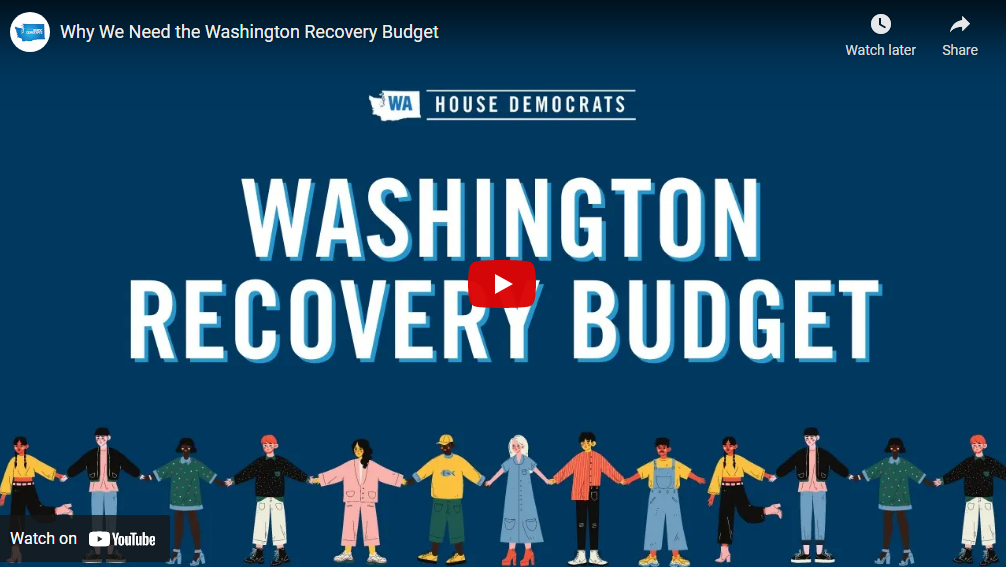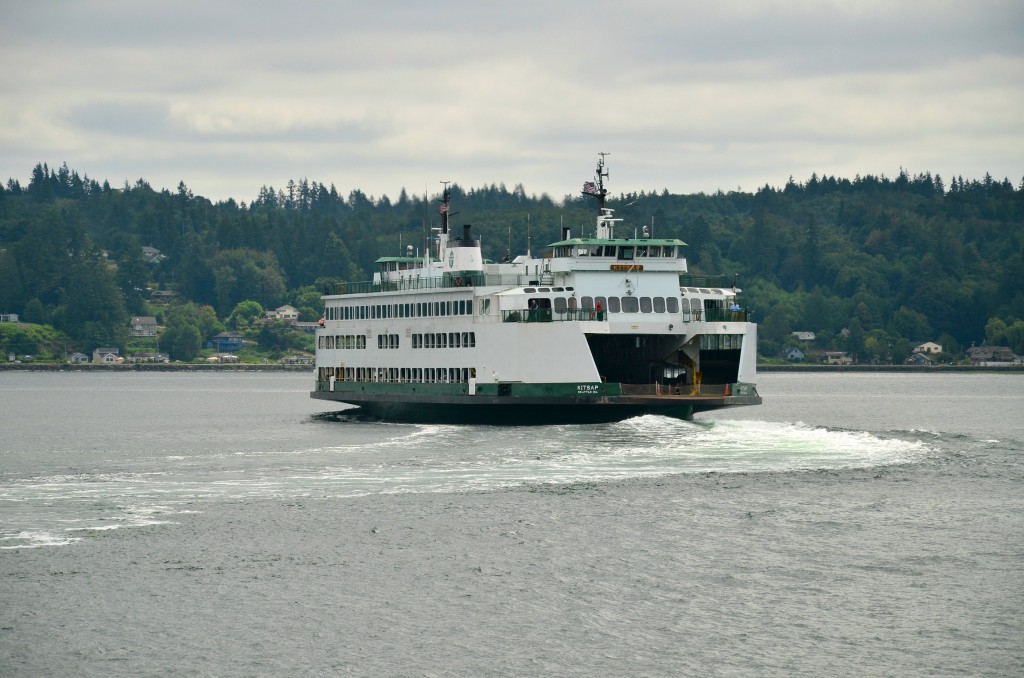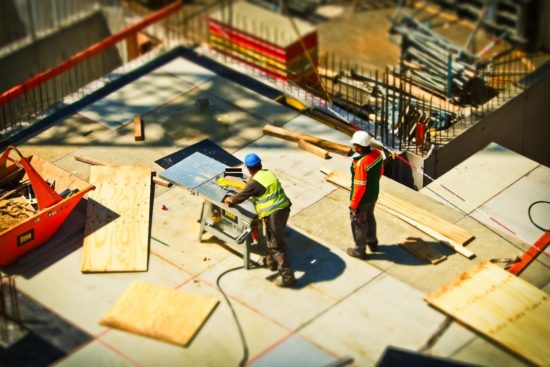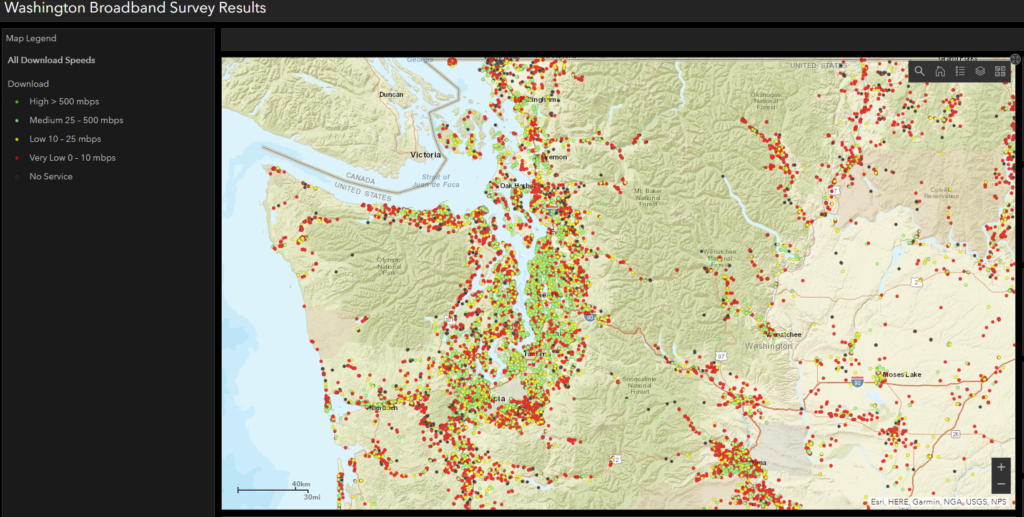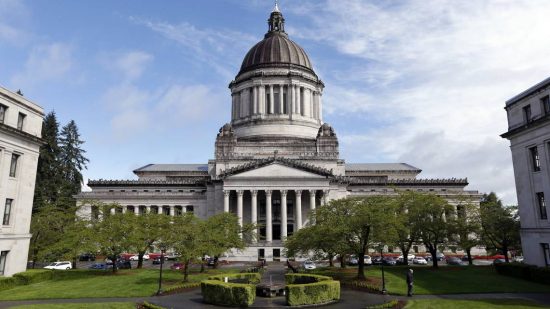Dear neighbors,
Major news is happening this week in Olympia, with all three budgets getting hearings and possible votes.
I have fought for local projects in the transportation and construction budgets, along with economic relief in the operating budget and better broadband access for rural areas like ours.
The three House proposals work together to do three things: beat this COVID pandemic, give people the help they need, and rebuild our economy.
In this newsletter, I’ll give you an overview of highlights for us here in the 10th District, then a deeper look at the operating, transportation, and construction proposals.
10th District highlights
Here is a partial list of items of particular significance to our local communities:
- $750,000 over 2 years to improve mental and behavioral health outcomes for children and youth in Island County.
- $850 million to assist with small business recovery across our state.
- $690 million in natural resource investments including clean drinking water, forest management, toxic cleanup, recreation and conservation, and state parks.
- $155 million in the capital budget for broadband access.
- Additional funding in the operating budget for better broadband access for all, including $24 million to help connect public school students, $1.3 million in grants to support broadband and digital equity planning, and $1.5 million to fully fund the State Broadband Office.
- $52 million to increase the number of school counselors across our state.
- $415 million for a temporary rate increase to long-term care and providers for individuals with developmental disabilities.
- $742,000 for the Stanwood Port Susan Trail.
- $320,000 for repairs to the Coupeville Wharf.
- $250,000 for the Riparian Buffer program to reduce water temperatures and improve salmon habitat on the Skagit River.
A budget that puts people first
During the Great Recession, our state endured massive budget cuts, including furloughs and layoffs for teachers, professors, state troopers, and other public servants along with cuts in services to our communities. It took years for working families to recover. Today, economists say we didn’t need to go through so much pain and misery. Austerity budgets only lead to more cuts and suffering.
The right way to bounce back from a recession, such as the one caused by the covid pandemic, is to give people the immediate help they need and to stimulate the economy.
We are taking this approach by proposing a Washington Recovery Budget to quickly get our economy back on track. This approach prioritizes families, small businesses, and those who have suffered disproportionate harm from the pandemic.
A few highlights of the budget:
Economic recovery
- $1.07 billion for rental assistance to continue the goal of paying the back rent accrued during the eviction moratorium. This is in addition to the $325 million allocated in the Step One for Community and Economic Recovery bill (HB 1368) passed by the Legislature in February.
- $600 million for unemployment insurance tax rate cuts to lessen that burden on businesses and $250 million in small-business grants to help get cash out to those businesses who kept their doors closed to protect others.
- $166.6 million in mortgage assistance through the ARPA Homeowner Assistance Fund to help prevent foreclosures and delinquencies.
- $140.8 million in food assistance programs so that families will not go hungry and to maintain our food security network.
- $121.6 million in state housing/homelessness assistance.
- $37.63 million to increase TANF grants and $26 million to extend TANF benefits.
- A $26.5 million increase to the Housing and Essential Needs Program. We know there are about 1700 people who are homeless, with disabilities, who are eligible for this program but there haven’t been enough funds to serve them, so this funding will get those 1700 people into the program.
- $26.2 million increase for the Emergency Cash Assistance program for families who need one-time funds to maintain safe housing and utilities or have an unexpected emergency.
- $13 million for state foreclosure assistance.
COVID response and health care
- $1.185 billion for COVID vaccines, contact tracing, and testing.
- $94 million for primary care provider rate increases.
- $35 million for uninsured and underinsured care through federally qualified health centers, rural health centers, and free clinics.
- $11 million for school nurses so that children have access to immediate care when they’re at school.
K-12 Education and Higher Education
- $53 million for additional special education funding.
- $8.9 million to cover school lunch copays so students aren’t turned away or shamed for not having money for their meals.
- Continuing our historic investments with the Workforce Education Investment Act, fully funding the Washington College Grant, and maintaining support for higher education institutions.
- $15.9 million for Guided Pathways, which helps community college students finish their education and training programs.
- $14 million in higher education emergency assistance grants that help college students maintain stability so they can finish their education.
A transportation budget that keeps Washington moving
Transportation took huge financial hits in 2020 from reduced gas tax revenues due to the pandemic.
The combination of revenue losses and safety measures also put “shovel-ready” projects—ones that were already funded and ready to go—on pause.
I am happy to report that things look much better today with nearly $800 million in federal funding for transportation.
The 2021-23 budget proposed by House Democrats takes projects off pause and continues the work of building a transportation system for the future. We need a system that’s cleaner, more sustainable, and gives people more options to get where they need to go.
Our budget invests in ferries, green transportation, mass transit, and fish passages.
I’m especially happy to report our proposed transportation budget includes $152.5 million to continue work on the state’s first hybrid-electric ferry, an Olympus-class vessel with construction beginning the spring of 2022 and funding for the material needed for the second such vessel.
There’s also $12 million for electric vehicle charging grants and alternative fuel refueling infrastructure and $15 million for green transportation capital grants to help transit agencies fund the projects needed to reduce carbon emissions and switch to electric vehicles or other zero-emission options.
A more in-depth look at the transportation budget proposal can be found here.
A capital budget that builds a better Washington
The 2021-23 capital budget proposed by House Democrats will fund critical investments and put tens of thousands of people to work rebuilding the economy.
Our proposed budget (House Bill 1080) includes $400 million in federal funding for investments in water, sewer, and broadband service along with $189 million for critical capital budget projects enabling work, education, health monitoring, and other items related to responding to the pandemic.
Public schools would receive $969.9 million, while community colleges get $299.8 million and public universities are set for $678.9 million in construction funding. The largest project is the construction of the Behavioral Health Teaching Facility at the University of Washington ($191.3 million).
This proposal also makes important investments in housing ($240 million), early learning ($48 million), and broadband internet access ($155 million).
By comparison, the 2015-17 budget included $75 million for housing, $15.5 million for early learning facilities, and $10 million for broadband.
Full details about the budget are available here and you can also look at district project lists and maps.
Small business grants are now open again!
If you’re a small business owner, please visit commercegrants.com to apply for a new round of aid.
Here are the details:
- Businesses must apply the grant award toward expenses incurred between March 1, 2020 through June 30, 2021.
- Commerce will take into account previous Working Washington awards distributed by the agency or affiliated partners. This means grant awards will vary. The maximum grant award will be $25,000.
- Grants must be equitably distributed statewide and to historically underserved and disadvantaged populations.
These grants are aimed at for-profit small businesses in industries that have hard costs associated with their operations and faced the most significant challenges to paying those hard costs because they were required to close. Hard costs include, but are not limited to, rent, utilities, payroll, or personal protective equipment.
Better broadband access
Is your internet connection slow? This is the time to do something about it.
This is Broadband Access Week, and you can help improve our state’s internet coverage by taking our state’s speed test. You can see a sample map of our state’s internet speed test above. Red is slowest, green is fastest, and yellow is in between.
It’s important that people in the 10th District take part, because this speed test is how our state measures the need for improved access.
The finish line
Things will happen fast now, with the House and Senate both voting on our proposals for all three budgets in committee and on the floor.
From now until we adjourn, we will focus on debating and voting on Senate bills, while the Senate will consider bills we passed out of the House, with one exception: bills you might hear called NTIB, which is short for Necessary To Implement the Budget.
By the last day of session, set for April 25, we will pass all three budgets. Because our state constitution sets up a two-year cycle, bills that failed to pass this session can still be perfected and considered in the short 60-day session that starts in January of 2022.
I appreciate all of you who have emailed, called, or written to my office to share your thoughts. Please continue to do so. I find your comments and stories invaluable, and I look forward to seeing you—in person—once this session is over and the covid pandemic is behind us!
As always, it is an honor to serve as your representative.

